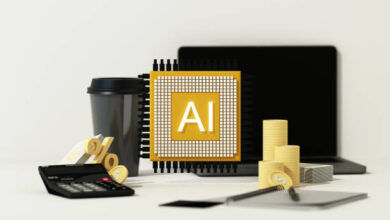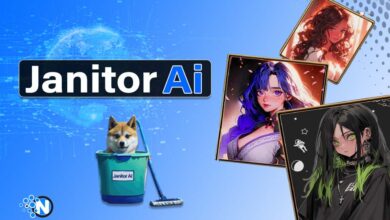Why Coral AI Is a Game-Changer in Edge Computing

In the fast-evolving world of artificial intelligence and machine learning, coral ai stands out as a transformative technology that brings the power of AI to the edge. Developed by Google, Coral AI is a complete platform designed to accelerate machine learning tasks directly on devices—without relying on the cloud. This article dives deep into what Coral AI is, its applications, and how it is reshaping the future of edge computing.
What Is Coral AI?
Coral AI is an edge AI platform by Google that provides hardware components, software tools, and pre-trained models for running machine learning algorithms locally. The primary component of Coral AI is the Edge TPU (Tensor Processing Unit)—a custom ASIC chip that delivers high-speed, low-power machine learning inferencing.
Unlike traditional AI platforms that require data to be sent to remote servers for processing, Coral AI enables real-time inference directly on edge devices. This not only enhances speed but also improves privacy, reduces latency, and minimizes bandwidth usage.
Why Coral AI Matters in Today’s Tech Landscape
The global shift towards smart devices, IoT systems, and decentralized processing has led to an increased demand for edge computing. coral ai caters to this need by offering efficient, scalable, and affordable solutions for deploying AI models in real-world environments. From smart cameras to industrial sensors, Coral AI powers a wide variety of intelligent applications.
Key Benefits of Coral AI:
- Real-time performance: Instant inferencing on edge devices without relying on cloud connectivity.
- Energy efficiency: Coral devices are optimized for low power consumption.
- Data privacy: Sensitive data never leaves the device, reducing security risks.
- Cost-effectiveness: By reducing the need for cloud services, Coral AI lowers operational costs.
Hardware Offered by Coral AI
Coral AI provides a versatile range of hardware to suit different development needs and production scenarios. These include:
1. Coral Dev Board
A fully integrated single-board computer designed for fast prototyping and development. It comes with an integrated Edge TPU coprocessor, making it perfect for running TensorFlow Lite models at the edge.
2. Coral USB Accelerator
This is a plug-and-play USB device that adds Edge TPU capabilities to existing systems. It’s ideal for developers looking to integrate AI features into devices like laptops, Raspberry Pi, or embedded systems.
3. Coral Mini PCIe and M.2 Accelerator
These are hardware accelerators for integration into industrial or commercial products. They provide scalable AI inferencing capabilities with minimal power usage.
Software and Tools for Developers
One of the strengths of coral ai lies in its robust software ecosystem. Google provides a wide range of tools and libraries to streamline the development process:
- TensorFlow Lite: A lightweight version of TensorFlow, optimized for mobile and embedded devices.
- Model Compiler: Converts TensorFlow Lite models into a format compatible with the Edge TPU.
- Pre-trained Models: Coral AI offers a library of pre-trained models for tasks such as image classification, object detection, and pose estimation.
Developers can also retrain these models using their own datasets, allowing them to build highly customized AI solutions.
Real-World Applications of Coral AI
Coral AI is already making waves across various industries. Here are some impactful use cases:
1. Smart Surveillance Systems
Coral AI enables real-time object detection and facial recognition in surveillance cameras. This eliminates the need for sending video footage to the cloud, resulting in faster and more secure monitoring.
2. Retail Analytics
In retail, Coral AI helps track customer behavior, optimize product placement, and manage inventory through intelligent camera systems.
3. Agriculture Technology
Farmers use Coral-powered sensors and drones to monitor crop health, detect pests, and manage irrigation—all without needing internet access.
4. Healthcare Devices
Medical devices can use Coral AI to perform on-device diagnostics, reducing the reliance on external servers and ensuring faster response times.
Coral AI vs. Other Edge AI Platforms
Several companies offer edge AI platforms, but Coral AI has some unique advantages:
| Feature | Coral AI | NVIDIA Jetson | Intel Movidius |
|---|---|---|---|
| Main Use Case | Edge ML Inference | Edge + GPU processing | Low-power vision tasks |
| Developer Support | Extensive tools & docs | Strong with CUDA | Moderate |
| Hardware Compatibility | Broad (USB, PCIe, M.2) | Limited to Jetson | USB & custom boards |
| Power Efficiency | Very High | Moderate | High |
While competitors have their strengths, Coral AI remains a top choice for developers seeking a streamlined, energy-efficient, and privacy-focused solution.
Setting Up Your First Coral AI Project
Getting started with Coral AI is straightforward. Here’s a quick overview of the steps involved:
- Choose your hardware (e.g., USB Accelerator or Dev Board).
- Download the Edge TPU runtime and libraries.
- Select a pre-trained model or train your own using TensorFlow Lite.
- Compile the model using the Coral AI model compiler.
- Deploy the model to your Coral device and start inferencing!
Google provides comprehensive tutorials and GitHub repositories to assist with every step of this process.
Future of Coral AI and Edge Computing
The future looks promising for Coral AI as edge computing becomes more mainstream. With growing concerns over data privacy and the need for real-time AI processing, coral ai is well-positioned to lead the way. Google continues to invest in this ecosystem, with regular updates, enhanced model support, and new hardware innovations.
Developers and businesses alike are increasingly turning to Coral AI for solutions that are faster, safer, and smarter. As 5G and IoT technologies continue to evolve, the integration of AI at the edge will become even more crucial—and Coral AI will be at the center of that revolution.
Conclusion
Coral AI is revolutionizing the way artificial intelligence is deployed in real-world environments. Its blend of powerful hardware, efficient software, and developer-friendly tools makes it a standout choice for edge AI applications. Whether you’re working on a hobbyist project or deploying at an industrial scale, Coral AI provides the speed, flexibility, and privacy that modern applications demand.
As we move deeper into the era of smart devices and decentralized computing, adopting platforms like Coral AI will not just be an option—it will be a necessity. If you’re looking to harness the full potential of AI at the edge, Coral AI should be at the top of your list.




